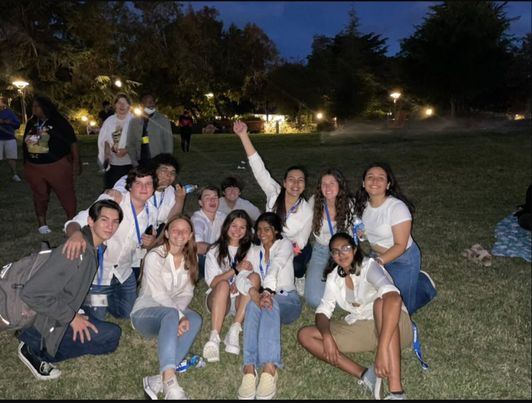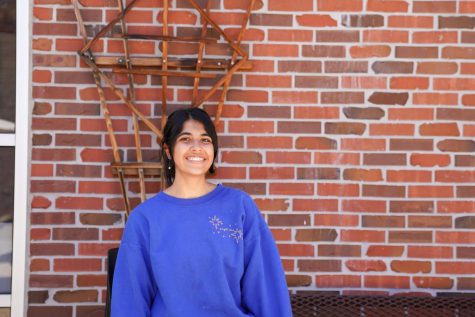Women in political science: Vedavi Kavoori
May 4, 2023
The 2020 quarantine lured teenagers like junior Vedavi Kavoori to immerse themselves in social media and scroll through posts and videos frequently. Kavoori was specifically fascinated by the increase in social media activism and became inspired by female politicians’ impact on public policy through just their online presence.
“You would see people like Ilhan Omar, Alexandria Ocasio-Cortez, Katie Porter and a bunch of other strong women who were coming from backgrounds that were pretty similar to mine,” Kavoori said. “Ilhan Omar is an immigrant, AOC was a lower class, or, middle class [person who] worked as a bartender for four years, and Ms. Porter was a teacher for a while. It made me realize, ‘Hey, I have the opportunity to change things [and] kind of do what they do — be the voice for [the] voiceless and [make] things happen for the better.’”

Since developing an interest in political science during the pandemic, Kavoori began participating in an effort to elevate the voices of minorities in the field, focusing on topics like immigration and eviction. Joining clubs like Speech and Debate and Mock Trial Club has shaped her view on the political world and enhanced her public speaking and argumentative skills. Additionally, interning for a year and a half with “Matt Mahan for Mayor,” a San Jose-based political campaign office, allowed Kavoori to connect the government and the people by taking polls and discussing legislation with residents at house parties, farmers markets and meet and greets. Kavoori enjoyed her experience working with a team of like-minded teenagers and Mahan, who she attributes for keeping the local community his first priority when determining policy.
“[The internship] made me realize just how much of an influence people can [make] because supporters of Matt would come up and talk to us about how much he’s already done,” Kavoori said. “And at that point, he wasn’t even a mayor, so I was like, ‘Oh my God.’”
Kavoori also spent a week during the summer between her sophomore and junior year partnering with “Just the Beginning,” an organization to help marginalized workers find lasting careers in the legal world, gaining industry connections and an opportunity to foster space for minority attorneys. Kavoori’s passion for politics inspired her hope to someday run for federal or local governmental office. However, despite her love of political science and admiration for women like Ilhan Omar and AOC, Kavoori constantly lives under the reality of the lack of women in the field, seen by how the U.S. Senate is only 25% women, a record high. Using this as motivation, Kavoori hopes to change the gender disparity and be the representation for younger generations of women in the future.
“It’s a bit of a downer because if a woman is to enter any field, they are going to be discriminated against — it’s just a fact,” Kavoori said. “I would say for political science specifically, [it] is definitely seen as a ‘man’s world.’ It’s very much a stigma that women are not really allowed to do any of the policymaking. It’s definitely something that I’m willing to fight against if that means [being] in any of those positions. I hope to change it. I hope that one day our society will be a world where women will not be discriminated against, in political science or otherwise.”



















